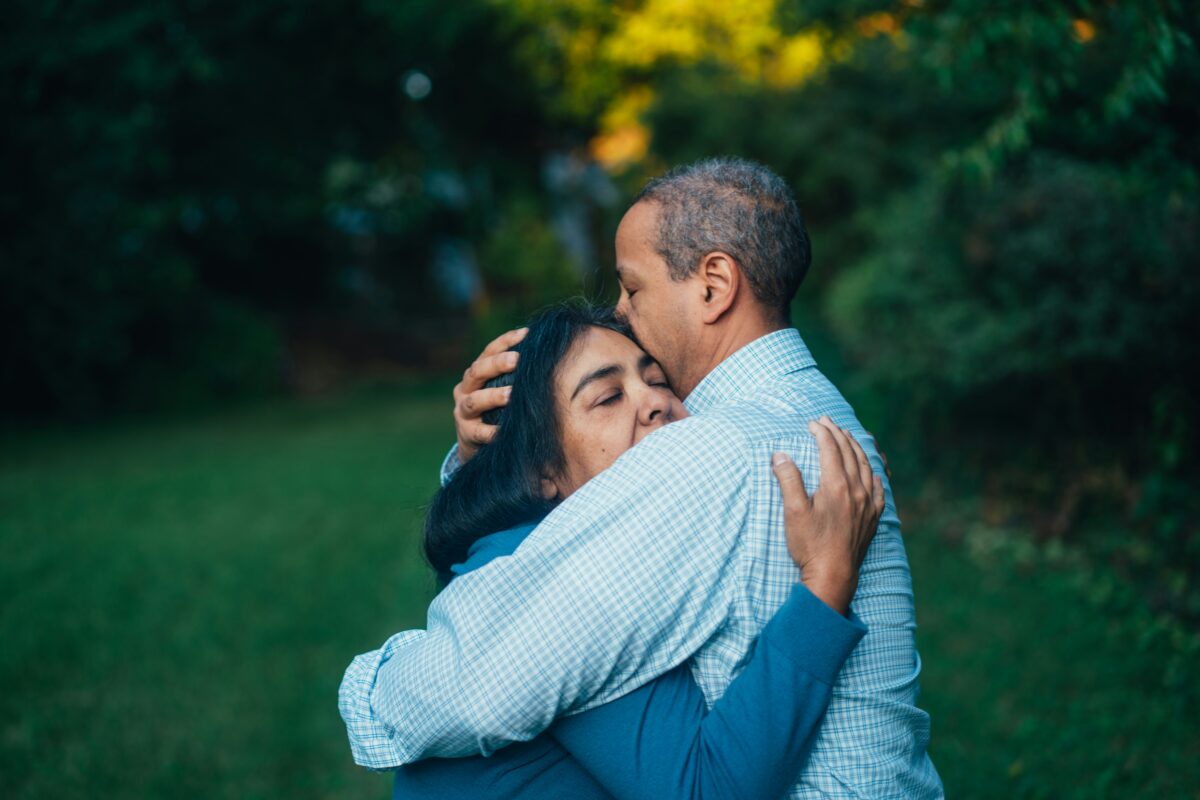Forgiving Others and Yourself by Maxie Dunnam

In my previous article, I made the claim that saying yes to forgiveness is the clearest claim that we are Christian. One of my heroes, Clarence Jordan, was my primary witness to that claim.
Clarence was a farmer and a New Testament Greek scholar. He wrote the Cotton Patch Paraphrase of the New Testament. He speaks throughout of how the segregated world of his day could be one in Christ. Yes,”God was in Christ, putting his arms around the world and hugging it to Himself.” (Jordan, 2 Cor. 5:19)
Saying yes to forgiveness is our clearest witness to the fact that we are Christian.
In this fourth article on Saying Yes to Forgiveness, we focus on forgiveness by forgiving ourselves.
The ongoing hazard each of us face in trying to be Christian is a double one. One side of it is to become so self-absorbed that our righteousness turns into self-righteousness. Persons can become so self-absorbed with their own righteousness that they allow it to turn into self-righteousness, and all of us know a few people like that.
The other side of the hazard is to slip into self-condemnation. It may be even easier to slip into self-condemnation than it is to slip into self-righteousness.
Norman Vincent Peale tells of a time when he was a young minister, in his first church. He was still in Seminary and was disenchanted with his work and also with himself. One day he was groaning and moaning over the state of affairs to a man in his congregation. The man had little formal education, but was blunt and honest. He also possessed a great deal of native insight. As young Peale went on and on with his complaints, the craggy man suddenly made an impatient gesture and almost shouted, “Stop it! Stop all that defeatist, negative talk! Remember this, Norman, and remember it always: Never build a case against yourself!” (Guideposts, 10-85, pp. 32-33).
That’s very good advice, but we are always doing it, aren’t we – slipping into self- condemnation, building a case against ourselves. We need to say yes to forgiveness by forgiving ourselves.
Amazingly, Saying yes to forgiveness offers freedom to the other – and claims freedom for yourself. Now get that. It’s very important. Saying yes to forgiveness offers freedom to another, and claims freedom for yourself.
There is a sense in which your enmity and estrangement from another hold both of you in bondage.
Let me underscore this point by addressing a particular issue – the issue of conflict in marriage. A family without conflict is not always a very healthy family. One writer has declared, “Show me a family that does not quarrel, and I will show you a family that will eventually fall apart.” I doubt we can be that dogmatic. Statistics, however, do show that most couples on the verge of divorce do not engage enough in open conflict – that is, they do not confront the issues with which they are dealing because they are afraid of conflict.
Saying yes to forgiveness offers freedom to the other – and claims freedom for yourself.
Rodney Dangerfield, that zany comedian, commented once, “My wife and I sleep in separate rooms, we never eat dinner together, we take individual vacations, and we are doing all we can to keep our marriage together.”
Well, some people think that the perfect marriage is one that is unmarred by conflict – one in which there are no arguments, no expression of differences – no sign of confrontation and estrangement. In fact there are some who believe that you are truly Christian when you always have your feelings under control, never raise your voice, never lose your temper, never take a person to task or do battle. That just isn’t so. Jesus didn’t teach it. Conflict is going to arise anywhere there is an intimate relationship. So the sign of health in a marriage and in a home is not the absence of conflict – the sign of health in a marriage and in a home is forgiveness.
We can’t live together intimately without hurting each other – but, we can’t keep on hurting each other and survive a relationship without forgiveness. If we remain separated from another, you hold both yourself and the other in bondage. Saying yes to forgiveness offers freedom to the other person and claims freedom for yourself.
In this series of articles on SAYING YES TO FORGIVENESS, I’ve said four things:
One, saying yes to forgiveness is saying yes to God.
Two, we are most like Christ when we are saying yes to forgiveness.
Three, saying yes to forgiveness is our clearest witness to the fact that we are Christian.
Four, in saying yes to forgiveness we offer freedom to another and we claim freedom for ourselves.
Ours is a time of great conflict. Conflicts can be resolved through the grace of God working between us. We do not need to let the evil and destruction of alienation and brokenness overcome us, ruin our lives, and rob us from the joy and wholeness of love. We can overcome by saying yes to forgiveness.
Subscribe
Get articles about mission, evangelism, leadership, discipleship and prayer delivered directly to your inbox – for free
Related Posts



